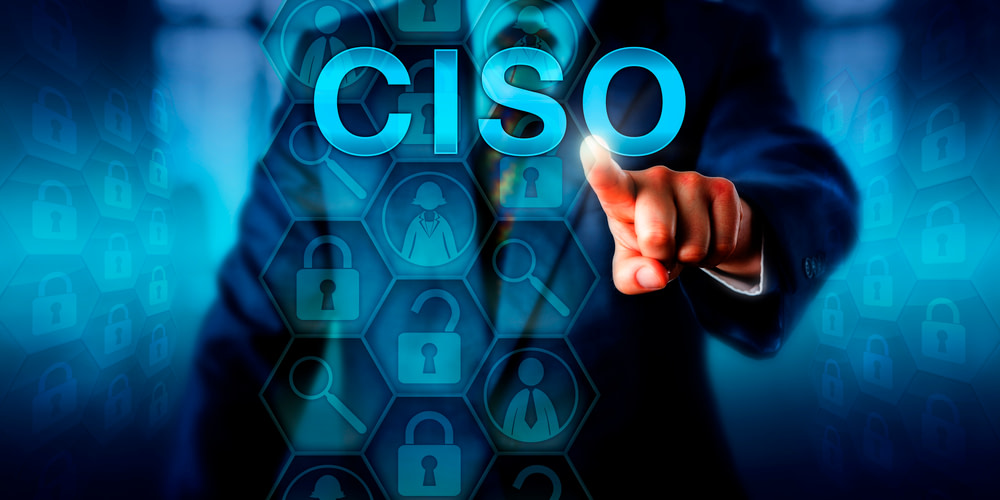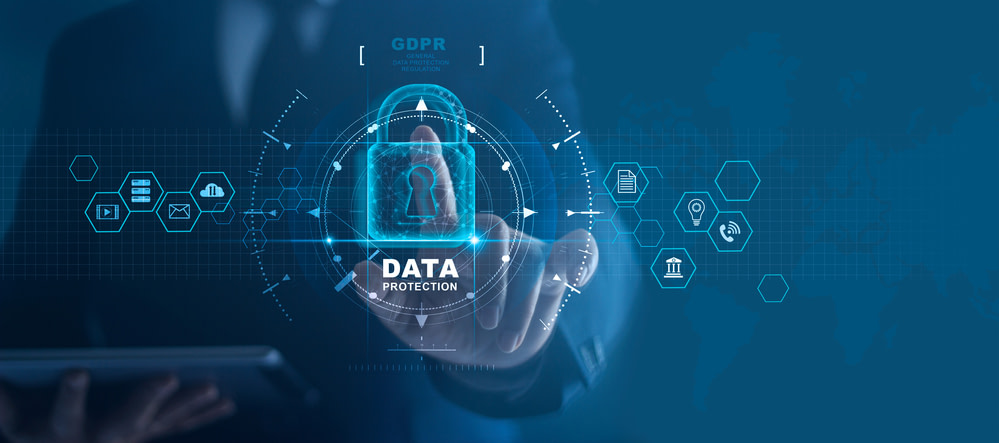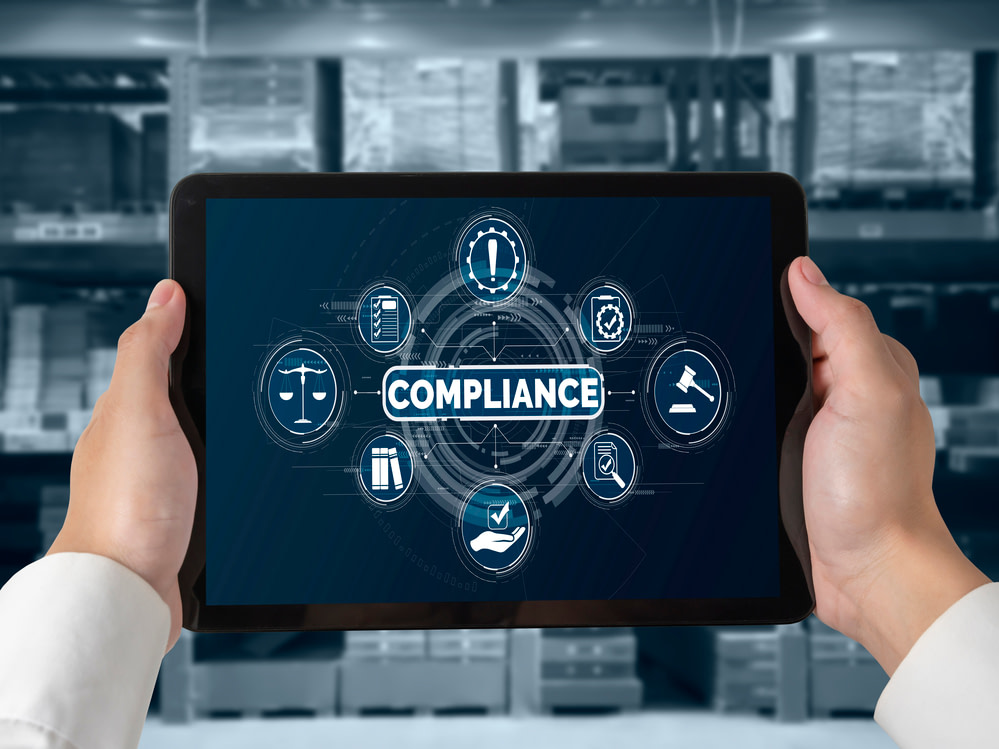The frequency, complexity, and scope of cyber threats keep increasing rapidly. In 2025, enterprises face sophisticated phishing attacks, AI-powered mass cyberattacks, dangers from foreign government-backed hackers, and growing vulnerabilities in Internet of Things devices. There were more than 2,300 ransomware attacks on American businesses in just the first six months of 2024, including the devastating Change Healthcare attack that locked down hospital systems for weeks. In this cybersecurity climate, CISOs have never been more critical to organizational security. But what are CISOs, what do they do, and how can they protect your business?
What Is a CISO and What Qualifications Are Needed for the Role?

A chief information security officer is a senior executive who oversees a company’s information and data security. As cyber threats have become more pervasive, the demand for CISOs has grown, especially in large enterprises and industries with strict cybersecurity compliance requirements. CISOs play a key role in safeguarding the digital infrastructure of modern organizations.
What enterprises look for varies by the needs of the organization, but many CISOs have a background in IT, infosec, or risk management — often with over a decade of experience. It’s common for CISOs to hold a bachelor’s degree in cybersecurity, computer science, or information systems.
Certification isn’t mandatory for CISOs but many clients expect it. The EC-Council exam for Certified Chief Information Security Officer requires at least five years of expertise in governance, information security, (infosec) strategic planning, security program management, and cybersecurity risk management. The respected ISACA programs for Certified Information Security Manager and Certified Information Systems Auditor also require five years of professional experience.
What Defines What a CISO Does?
The meaning of CISO combines leadership responsibilities, policy creation, program management, and system oversight.
Developing an Information Security Program
CISOs develop and implement an organizational information security program, which includes policies for protecting enterprise communications, systems, and assets from internal and external threats.
The first step in creating an effective infosec program is assessing current security measures. CISOs carefully examine company processes and procedures and identify gaps.
They also look for vulnerabilities and develop strategies to mitigate them. The definition for a CISO’s role practically requires staying up to date with the latest data security trends, cyber threats, and technology solutions.
Managing Risk
One of a CISO’s primary duties is managing and mitigating risk. To this end, cybersecurity professionals conduct regular assessments to understand the potential impact of threats and vulnerabilities. Based on this information, the CISO prioritizes risks based on severity and likelihood of occurrence.
Mitigating risks usually involves implementing advanced threat detection systems and administrative access controls. These preventative measures help ensure that only authorized individuals can access sensitive data.
Ensuring Regulatory Compliance

Many modern enterprises must adhere to industry or governmental data security regulations. Fines for GDPR violations can cost companies millions of dollars — up to 4% of their global revenue. CISOs support regulatory compliance by conducting regular audits to verify that security practices align with applicable requirements.
Overseeing Incident Response Management
When disaster strikes, it pays to have an incident response plan. CISOs are responsible for developing and executing these plans to limit damage as much as possible.
In the event of a data breach, CISOs coordinate the response effort, gathering IT and security teams to investigate the incident, determine its scope, and identify the root cause. Once the threat is contained, the CISO works to eradicate any malicious elements from the company’s system and restore normal operations.
Fostering a Culture of Security
Building an organizational culture that integrates security practices is a key defense against social engineering attacks like phishing and vishing. Prioritizing cybersecurity best practices can help businesses achieve and maintain compliance:
- Emphasizing cybersecurity as an important company goal
- Integrating one practical tip into every meeting
- Posting reminders around the workplace about appropriate security practices
- Holding regular meetings to discuss potential process and data security improvements
Being a CISO means ensuring that personnel understand and follow data security best practices. This can require organizing training sessions, workshops, and even simulated attacks. By getting employees onboard with the right protocols, CISOs improve the entire organization’s security posture.
What is a Chief Compliance Officer, and How Does the Role Differ From a CISO?

A chief compliance officer keeps businesses in line with legal standards, regulatory requirements, and internal policies. CCOs are responsible for developing and managing the enterprise’s overall compliance program, covering everything from training to audits. A CCO’s primary goal is to detect and respond to compliance violations, helping the organization avoid penalties.
There is some overlap between CCOs and CISOs; both aim to protect organizations and motivate employees to follow correct practices.
That said, a CISO’s primary focus involves promoting data security and safeguarding information assets against cyber threats. The CCO role covers a broader range of regulatory and legal compliance issues, including financial regulations and ethical concerns.
Why Is a CISO Important for Effective Cybersecurity?
The importance of cybersecurity today cannot be overstated. With over 70% of organizations reporting an increase in cyber threats, businesses must be constantly on the lookout for emerging threats. Turning a blind eye can have lasting consequences, especially as the complexity of attacks grows.
A CISO can help you develop a solid cybersecurity organizational structure. With expert assistance, you can more easily adapt to evolving needs and risks, and develop lasting solutions for your company.
Threat Intelligence
The cornerstone of any cybersecurity structure is threat intelligence, something CISOs excel at. Professionals are skilled at spotting attack vectors. By leveraging internal data and external sources, a CISO can proactively defend against attacks and react swiftly to incidents.
Identity Management
You don’t want unauthorized users poking around your organization’s sensitive data — or holding it for ransom. Identity management is a critical element in cybersecurity frameworks, and CISOs work tirelessly to restrict access with comprehensive identity and access management systems.
Security Architecture
Any cybersecurity framework requires ongoing monitoring and updating to adequately defend against threats. CISOs ensure that security architecture aligns with company objectives and implement changes when needed to mitigate vulnerabilities.
Discover What a CISO Can Do For Your Business
Risk management is non-negotiable in today’s world. The role of a CISO is invaluable in detecting and responding to threats. A good security program can be the difference between stable financial growth and business collapse. CISOs can ensure that you stay on the right side of things. How do you define a CISO? In short, it’s someone who can save your company from potential disaster. Taking the time to learn more about what a CISO is and what to look for can help you protect your organization’s most valuable digital assets. Discover Compyl’s cost-effective and adaptable virtual CISO solutions for your modern cybersecurity needs today.



